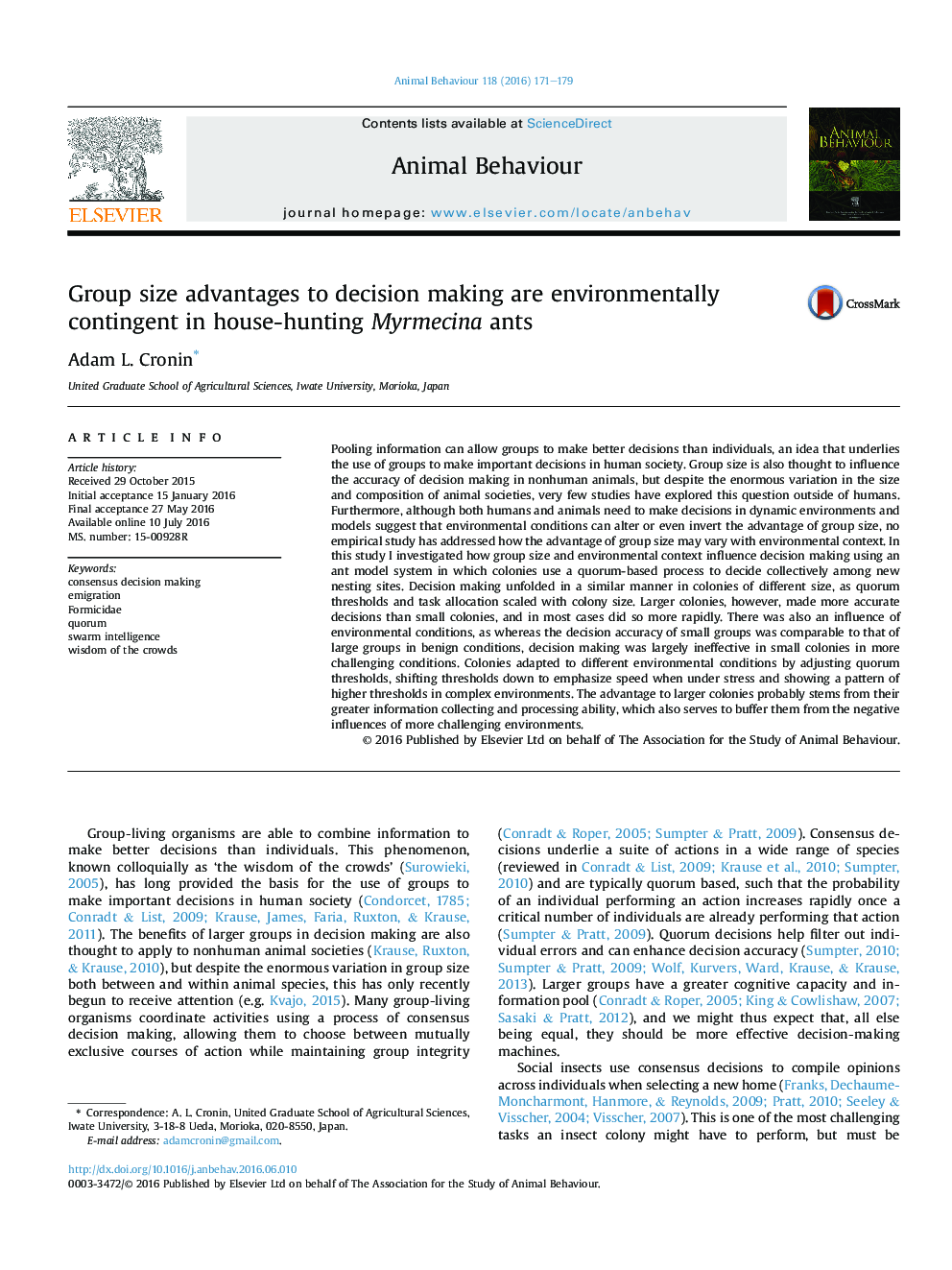| Article ID | Journal | Published Year | Pages | File Type |
|---|---|---|---|---|
| 2416247 | Animal Behaviour | 2016 | 9 Pages |
•Larger groups of animals can pool information to make better decisions.•Ant colonies deciding on a new home were used to test this idea.•Large colonies were faster and more accurate in all environments.•Small colonies suffered higher accuracy costs in more challenging environments.
Pooling information can allow groups to make better decisions than individuals, an idea that underlies the use of groups to make important decisions in human society. Group size is also thought to influence the accuracy of decision making in nonhuman animals, but despite the enormous variation in the size and composition of animal societies, very few studies have explored this question outside of humans. Furthermore, although both humans and animals need to make decisions in dynamic environments and models suggest that environmental conditions can alter or even invert the advantage of group size, no empirical study has addressed how the advantage of group size may vary with environmental context. In this study I investigated how group size and environmental context influence decision making using an ant model system in which colonies use a quorum-based process to decide collectively among new nesting sites. Decision making unfolded in a similar manner in colonies of different size, as quorum thresholds and task allocation scaled with colony size. Larger colonies, however, made more accurate decisions than small colonies, and in most cases did so more rapidly. There was also an influence of environmental conditions, as whereas the decision accuracy of small groups was comparable to that of large groups in benign conditions, decision making was largely ineffective in small colonies in more challenging conditions. Colonies adapted to different environmental conditions by adjusting quorum thresholds, shifting thresholds down to emphasize speed when under stress and showing a pattern of higher thresholds in complex environments. The advantage to larger colonies probably stems from their greater information collecting and processing ability, which also serves to buffer them from the negative influences of more challenging environments.
